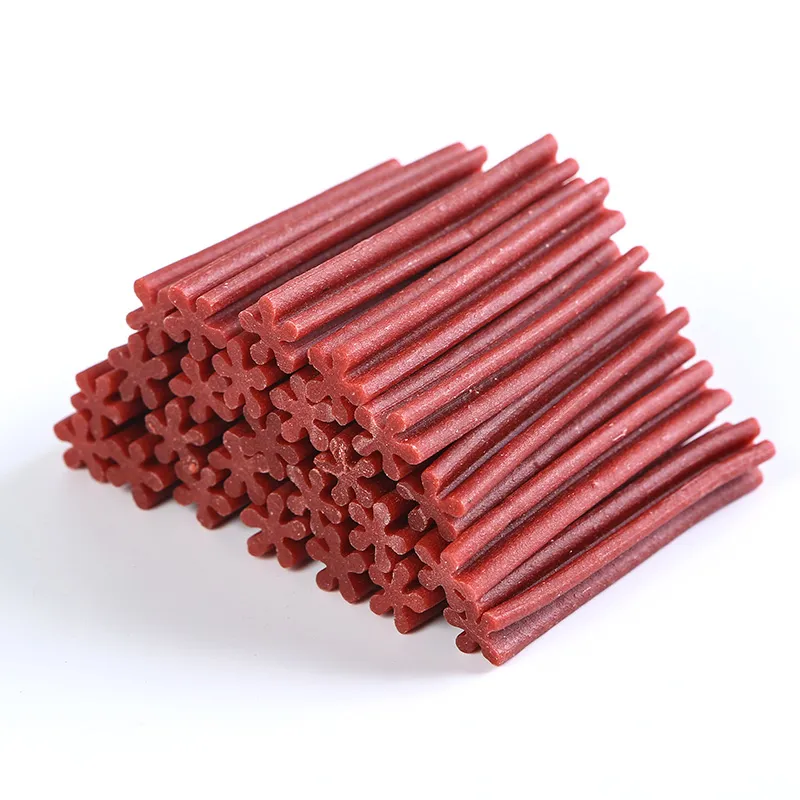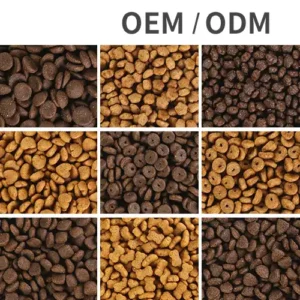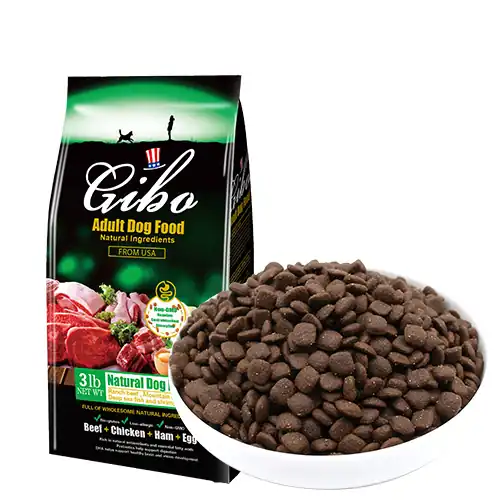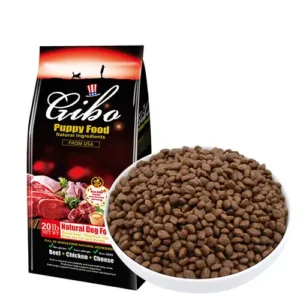Sickness, stress, having food available all the time, noisy eating environment, boredom of food, unlimited snacks, etc. are some of the common reasons for dogs to be picky eaters! Hairdo has compiled 5 tips to help parents get rid of picky eaters!
6 common reasons why dogs are picky eaters
Dogs do not want to eat, may be physiological, psychological factors, but may also be hair parents spoiled mouth was raised gripped Oh! Encountered at home fur child picky eating behavior, to first find out the reasons for picky eating, in order to solve the problem of dog picky eating thoroughly under the symptom.
Dogs picky eating common reason 1: dog sick
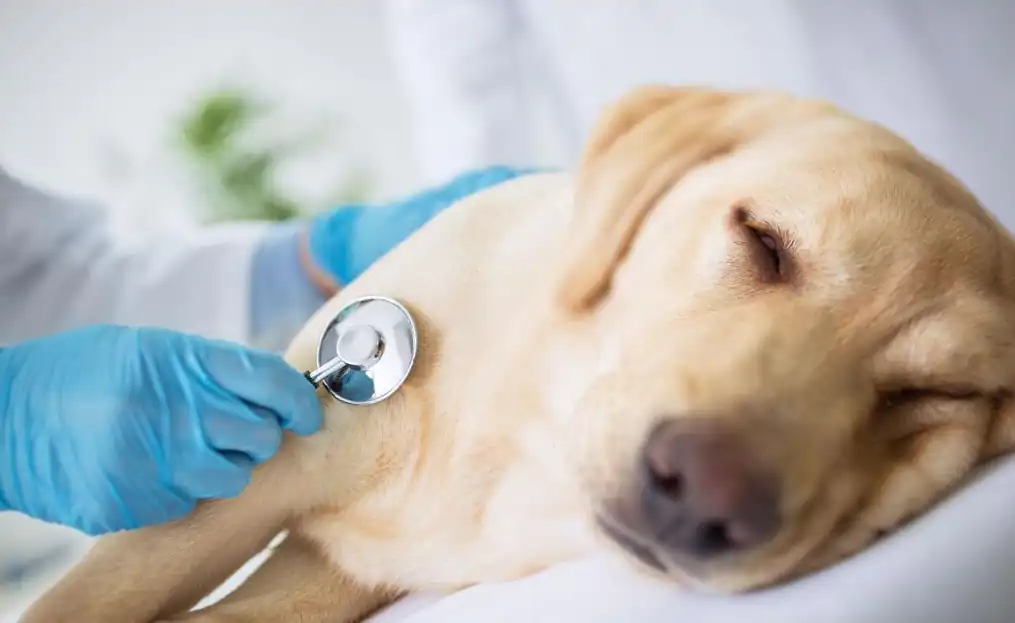
Compared to people who can express themselves in words when they are not feeling well, the common expression of dogs’ discomfort is that their appetites become worse and they don’t eat. In addition, because dogs are very tolerant of pain animals, so many times when the dog does not eat the behavior, may be the body has reached a very uncomfortable situation.
If the dog eats normally, and there is no change in feeding method and amount, but suddenly appears to love to eat, it is likely to be physically uncomfortable such as gastrointestinal problems, fever, oral diseases and other causes of loss of appetite, it is recommended to take the dog to the doctor as soon as possible, so as not to miss the golden period of treatment.
However, if your dog’s eating habit is to eat one meal and not to eat the other, and not to have a very strong appetite for every meal, then you can observe your dog for another 24 hours. Usually, if the dog hasn’t eaten for more than 24 hours, he may start to suffer from dehydration, low blood sugar and other health problems, so if he still doesn’t eat after this time, please bring your dog to the doctor as soon as possible.
Common Reason 2: Stress in Dogs

Just like people, stress affects their appetite, and so do dogs. Stress will affect the dog’s appetite, may make the dog overeat, or suddenly do not eat, this situation needs to prioritize the elimination of the dog’s stressor, in order to have the opportunity to solve the problem of the dog does not eat.
Factors that may cause stress in dogs include:
Emotional changes:
When your dog is feeling anxious, upset or depressed, these emotional states may cause your dog to lose interest in food, as your dog is more interested in resolving or coping with these emotional stressors. After this point, you can observe your dog’s recent moods for any abnormalities.
Life changes:
With the change of living environment, such as owners leave home for a long time, change of family members, the emergence of new pets at home, or moving and other changes in the environment. These changes may bring the dog a feeling of insecurity or mistrust, as they will need time to adapt to the new situation, which in turn will lead to stress and poor appetite.
Traveling:
Many furry parents will take their furry children out for a trip, but the common situation during the trip is due to the big difference with the environment at home, or the original time of eating is delayed, and these stresses will make the dog who originally has a good appetite suddenly have no appetite and don’t want to eat.
Dogs picky eating common reason 3: always have food
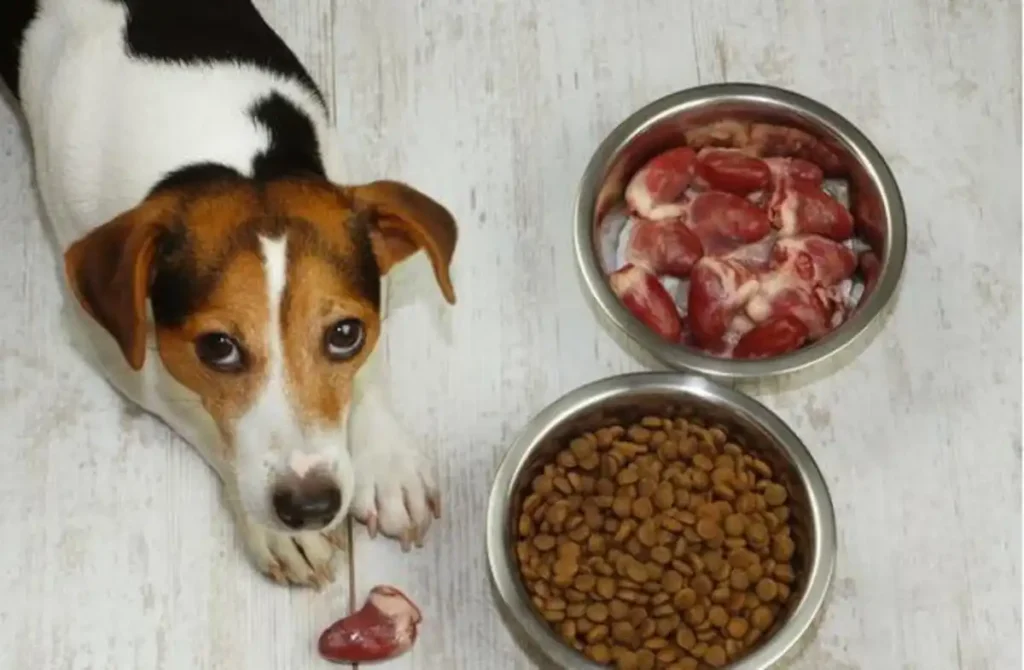
When the bowl is full of food all the time, the dog can eat when they want to eat, there is always food to choose, they will know that anyway, they do not eat now, later when they are hungry, there is still food to eat. This can make it difficult for your dog to eat at mealtimes. In addition, the unlimited supply of food will cause some of the food that can not be stored for a long time to be easily spoiled, and if the dog eats the spoiled food, it will be more likely to suffer from diarrhea and other health hazards. In addition, if the dog eats the spoiled food and therefore has diarrhea, vomiting, these uncomfortable feelings will cause the dog’s fear, it will be easy for the food to have a bad memory link, which will lead to the future see similar food shapes, colors, etc. will be due to want to avoid the instinct to become picky eaters more serious.
Dogs picky eaters common reason 4: eating environment is too noisy
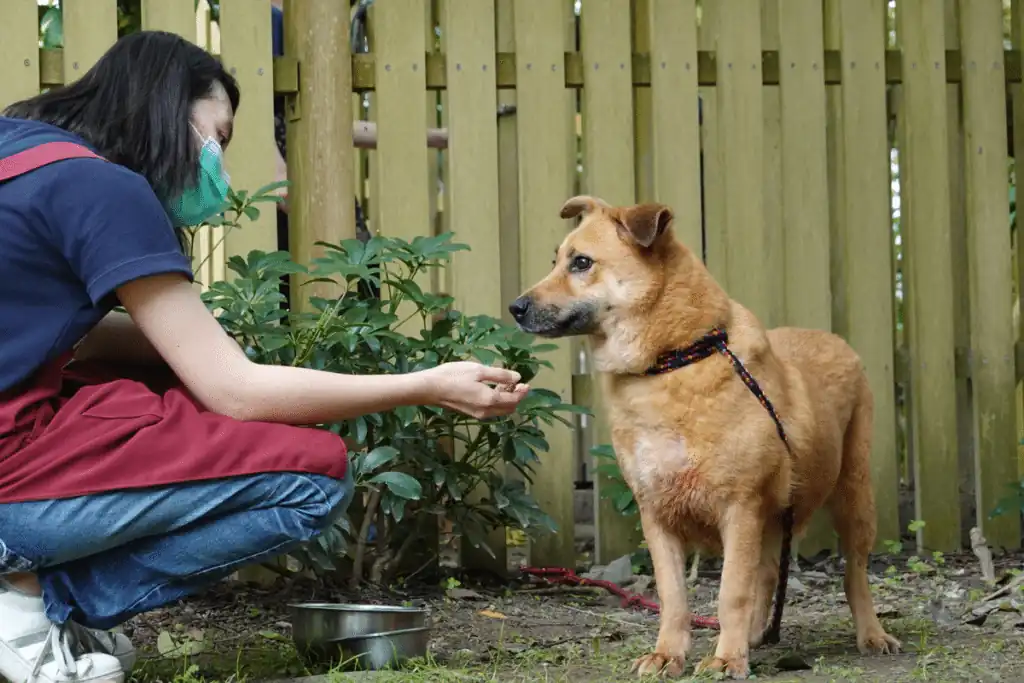
If the eating environment is too noisy, the noise and interference in the environment will easily make the dog unable to concentrate on eating.
Anxiety and restlessness:
Noise in the environment may make the dog anxious and uneasy, these emotions are easy to distract the dog’s attention, so that they can not concentrate on eating.
Noise interference:
If the eating environment is too loud, it can cause strong noise disturbance to the dog and can scare the dog causing it to feel uneasy or even scared. In this case, the dog will prioritize the fear and will not want to eat!
Appetite loss:
In a noisy environment, it is easy to affect the dog’s sense of smell and taste. By the influence of the external environment, it is difficult to focus on the taste of food aroma and flavor, thus reducing the interest in picky eating behavior.
Common Reason for Picky Eating 5: Getting tired of food!
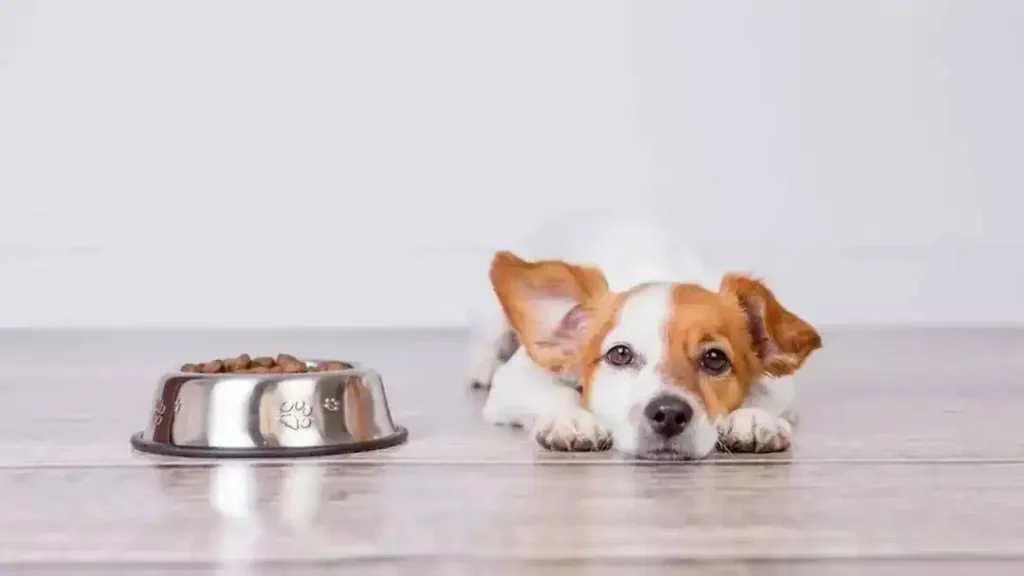
Humans will get tired of food, dogs will also get tired of food, some dogs will continue to finish their food, but dogs with more personality may be picky about their food and not eat. At this time, hairy parents can make slight changes to the dog’s menu, because they are afraid of problems such as palatability, gastrointestinal discomfort, etc. Therefore, it is better to make fine-tuning and slow changes every time when adjusting the dog’s menu! You can increase the variety of feeds, such as freeze-dried, wet food, and other staple foods that have different flavors but are also nutritious. Also note that if you want to make adjustments to your dog’s menu, please remember that such adjustments should be made before you feed your dog, not after you realize that your dog doesn’t like the food, and then you start adding more food, which will cause your dog to eat the food that is added later, and then be reluctant to move from the front of the menu.
But if the hairy parents are worried about the dog did not eat enough, from time to time to provide more tasty food such a situation, but instead of letting the dog feel that the main food is relatively tasteless, it has more and better right to choose, and therefore more likely to have picky eating behavior Oh.
Dogs picky eaters common reason 6: snacks without limitations
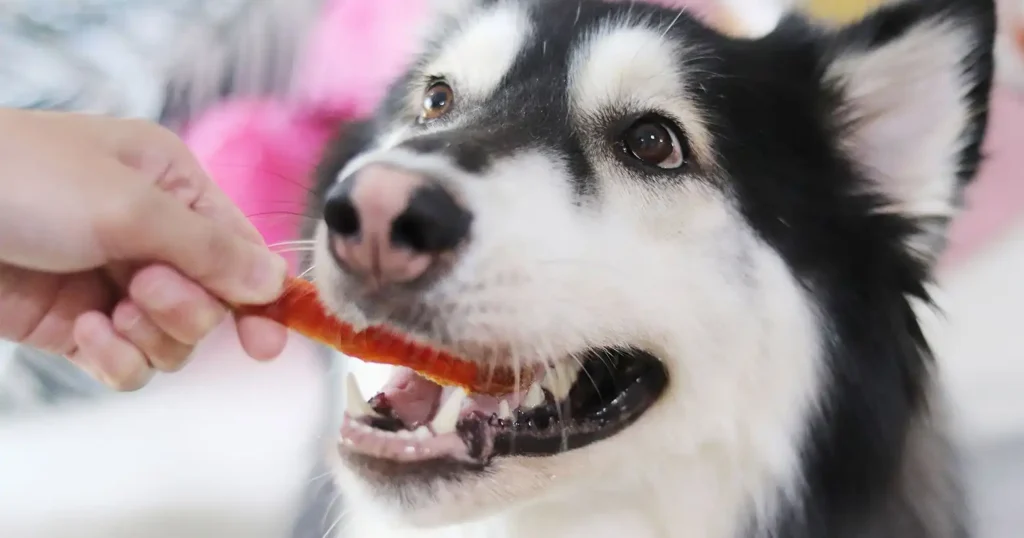
Unrestricted to the dog to eat snacks, the dog will not eat meals also have to eat snacks of bad habits, but also because the snacks eat too much, resulting in the dog can not eat the main meal. The following reasons can also cause your dog to be picky about food, not eating meals, and only eating snacks:
Specific food preferences:
Dogs may begin to develop a preference for snacks because they are often tastier than dry food or staple foods. When a dog eats snacks regularly, he may also become more picky and will only eat his favorite food (snacks) and refuse the main food.
Satiety:
Snacks are usually much less nutrient dense than staple foods, but they can easily create a feeling of satiety. Therefore, if your dog eats snacks too often, he will become full before he eats the main meal, as mentioned above.
Lose the value of food:
Because for dogs, if they don’t eat the main meal, but still have more delicious snacks to enjoy, they will lose interest in the main food and become a picky dog that only eats snacks!
5 Ways to Improve Your Dog’s Picky Eating
The bad habit of picky eating in dogs can be big or small, but if it is not corrected for a long period of time, it is easy for dogs to suffer from malnutrition, bad spirit, and even affects their physical health. If you have already confirmed that the reason why the dog does not eat has nothing to do with physical illness, you can try the following 5 ways to improve the dog picky eating, to help fur parents to improve the dog picky eating problem.
Method 1: Feeding at regular intervals
Feeding your dog at regular intervals will help your dog establish a more regular and healthy eating habit. Dogs will know when to expect food, and this anticipation will help them to reduce anxiety and increase their appetite. Feeding at regular intervals also helps to build up the owner’s authority, so that the dog understands that food is provided by the owner and is more likely to accept the owner’s direction and control.
Methods of feeding
Feed at regular intervals:
Be sure to give your dog a limited amount of food at meal times. Usually the feeding time is set for 20-30 minutes, if the dog has not finished the food after that time, the fur parents must be cruel and put the food away until the next meal time. Don’t feed your dog any snacks in between meals just because he’s pampered. After a few times, your dog will know that it’s time to eat at mealtime.
Quantitative feeding:
Don’t be tempted to feed your dog more just because it looks like it’s still hungry after it’s eaten all of its food! Quantitative feeding can help furry parents monitor their dog’s food intake, and if you want to increase the amount of food, it is recommended to slowly increase the amount, so as not to cause the dog to eat too much at one meal, and then not eat at the next meal, or gastrointestinal discomfort and other symptoms.
Method 2: Control snack feeding time
Controlling the feeding time of snacks can adjust the dog’s value of food, so that the dog recognizes that meals and snacks are different things, which will make snacks more valuable in the dog’s eyes, and the use of snacks as training commands will also be more accurate.
Practice:
Snacks are not impossible to feed, but you have to choose the right time to feed, such as a small snack after the meal, can be used as a reward for obediently finish the meal, or a small incentive for training, so that the control of feeding snacks to avoid the dog to eat too many snacks lead to a bad meal situation.
Recommended Dog Snacks
Method 3: Halve the amount of food for the next meal
Halving the next meal is also known as restrictive feeding, which mainly builds up your dog’s sense of hunger, so that after halving the amount of this meal, he will feel more hungry before the next meal, thus increasing his interest in food. Restricted feeding also teaches your dog the importance and value of a meal, so that he or she understands that he or she has to eat a specific amount of food within a specific time frame.
Practice:
Calculate the amount of food you need to feed your dog every day. If your dog can’t finish all the food at the end of the meal time, you can try to halve the amount of food you feed your dog at the next meal until your dog regains its appetite, and then slowly increase the amount of food you feed your dog back.
Method 4: Adjust the temperature of the food and change the flavor in time.
Dogs, like people, will lose their appetite for inconvenient food. By adjusting the food temperature and changing the flavor, you can make your dog feel new and exciting, which in turn will stimulate your dog’s appetite and adjust the bad habit of picky eating!
Variety of flavors:
Through timely change of food flavor or food brand, formula, can make the dog feel novelty, increase appetite.
Temperature change:
Temperature change will affect the taste and smell of food, which will attract dogs to eat and increase their interest in food.
Increase excitement:
Making slight adjustments to each meal will increase your dog’s excitement for the meal when there are different surprises.
How to do it:
Heat the food a little bit to let the aroma of the food spread out and increase your dog’s appetite. If your dog is bored with the original food, we suggest you to add powdered food, freeze-dried food, wet food, etc., to change your dog’s taste and appetizer.
Method 5: Increase Exercise
Increase the amount of exercise can improve the dog’s metabolism, reduce stress and enhance the dog’s appetite. In addition, the increase in exercise can actually improve the dog’s gastrointestinal health, so that the fur child to become a good dog is not picky about food!
Increase Appetite:
Exercise can increase your dog’s metabolism, so your dog needs more energy and nutrients. When dogs exercise more, they may also become hungrier and more willing to eat.
Reduce stress:
Just like humans, exercise helps dogs release happy hormones such as dopamine and endorphins from their bodies, effectively reducing feelings of stress and anxiety. Because stress and anxiety are one of the reasons why dogs are picky eaters, when these two emotions are resolved, it can also improve the dog’s appetite!
Improve the gastrointestinal tract:
Exercise helps to improve your dog’s intestinal motility and reduce bloating. Therefore, if your dog has digestive problems or gastrointestinal discomfort, you can increase the amount of exercise to alleviate these problems that may affect the appetite.
Practice:
Take your dog out for walks more often to increase its exercise, increase some calorie consumption, hunger, can also promote appetite!
Recommended Dog Food
Frequently Asked Questions about Dog Picky Eating
Q1:What should I do if my dog is so hungry that he vomits yellow-colored liquid?
This yellow colored liquid is stomach acid. Excluding vomiting due to illness, it is usually due to over-starvation that dogs vomit stomach acid. We suggest that you can add some flavorings to the food to change the taste so that your dog will be willing to resume eating.
Q2: How to adjust the amount of food after the dog’s appetite is restored?
When your dog is picky about food, it is recommended to provide regular meals at regular intervals. If the food is not finished when the time is up, you can reduce the amount of food for the next meal. When your dog regains its appetite, you can increase the feeding amount according to its eating condition until it reaches the feeding amount suitable for its body weight.
Q3:Do I have to insist on not feeding my dog snacks if he is a picky eater?
It is best to feed snacks for a reason, such as to “reward” him for doing the right thing, do not let the dog think that he can have snacks all the time, which will easily lead to a deviation in his value of food, and it will be easier for him to develop the bad habit of being picky about food!




